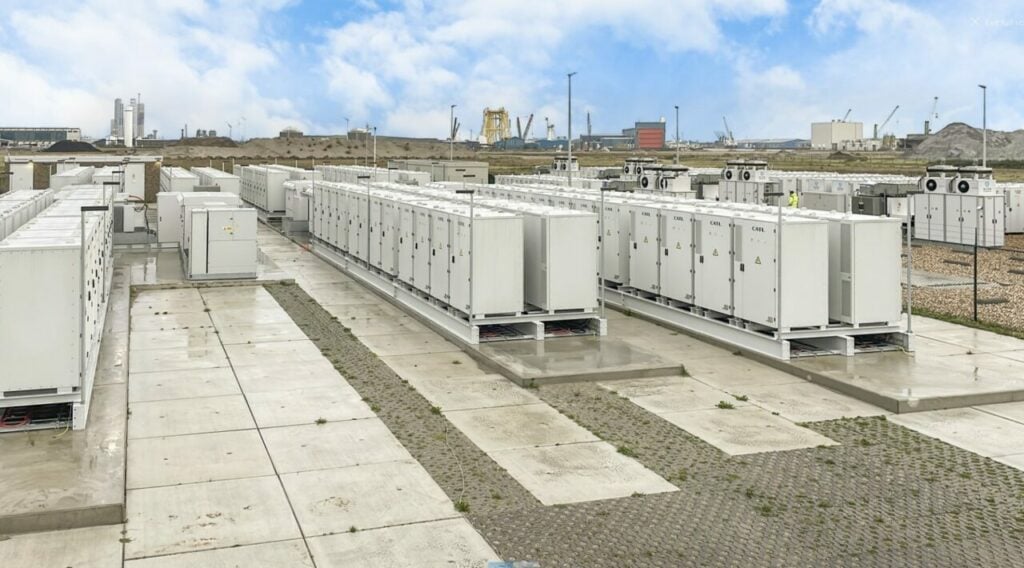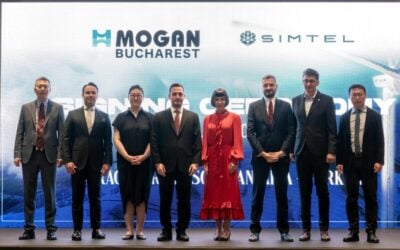
New rules which will reduce grid fees in the Netherlands by providing ‘non-firm agreement’ (NFA) connections as well as time-weighted rates could improve returns and double projected BESS deployments, an analyst has said, though a project owner was less openly optimistic about it.
Consultancy Aurora Energy Research analyst Jesse Hettema said the combination of the two changes could reduce grid fees by up to 67%, improving the business case, while developer-operator SemperPower’s commercial director Jacob Jan Stuyt said “we will have to wait and see” the impact.
Enjoy 12 months of exclusive analysis
- Regular insight and analysis of the industry’s biggest developments
- In-depth interviews with the industry’s leading figures
- Annual digital subscription to the PV Tech Power journal
- Discounts on Solar Media’s portfolio of events, in-person and virtual
Netherlands energy storage market yet to take off
Energy-Storage.news has written regularly about the Netherlands energy storage market being slower to take off than other European countries, part of which is related to high grid fees which battery energy storage system (BESS) have to pay, as per the Dutch grid’s technology-neutral approach (BESS is exempted in Belgium and Germany). Grid fees only apply to charging/drawing power from the grid.
The regulator ACM has been considering flexibilising its grid fees but has faced a challenge in doing so while maintaining that technology neutrality. A big solar, wind and EV charging infrastructure buildout has led to increased stress on the grid which, combined with stakeholder pressure, led ACM to bring in the changes, said Hettema, Aurora’s head of Netherlands and Belgium.
Hettema: “From January this year, developers can now be provided a non-firm connection
that lowers grid fees in exchange for lowered availability of the grid. A new proposal (called ATR85) that could become active from April 2025, offers more certainty on this by offering a 50% discount for restricted charging/drawing power from the grid for a maximum of 15% of the time.”
“On top of that, another measure is proposed that will ‘weight’ grid fees for different hours in the day, meaning you pay a bit more when the grid is under stress and a bit less when it isn’t.”
The rules are technology-agnostic and so could apply to large industrial users who can make their power consumption more flexible. Users are notified at least 24 hours in advance what the ‘no charge’ period of the day will be.
Aurora: changes could reduce grid fees by 67%
Hettema said Aurora estimates the two changes combined could reduce grid fees by two-thirds, and with grid fees equal to as much as 60% of revenues for storage, that would be a substantial improvement to the business case.
Of course that 15% of the time reduces energy storage operators’ flexibility to monetise their asset. Jan Stuyt was sceptical on the benefits of such an agreement when we interviewed him earlier this year, and in response to our request for comment this week was equally cautious.
“For us it’s difficult to comment on the future of grid fees and the impact of the NFAs. The most important part is that legislative parties have acknowledged the importance of large scale BESS for the Netherlands and the importance in the grid,” Stuyt said.
“As there are many moving parts for integrating BESS in the grid we believe that equality and transparency is key in solving this puzzle. The NFA will have impact on the development of BESS but what the impact will be we will have to see.”
Hettema meanwhile said that the 15% moments should not significantly affect revenues, as those periods would typically be high-demand periods when you wouldn’t want to charge your BESS anyway.
But he gave an example of how it might be a negative in practise: “For example, TenneT might have set a period of increased power demand as one of those 15% moments preventing you from charging, but producers miscalculated and underestimated how much solar production there was going to be. That could lead to high prices on the imbalance market which you then wouldn’t be able to fully take advantage of.”
Impact on deployments
Hettema said that without any grid fee reform Aurora expected grid-scale BESS capacity to remain below 1GW by 2030, since most projects wouldn’t be profitable.
“With the proposed grid fee reform, we expect the build out to be much higher potentially going to above 2 GW of utility scale batteries by 2030,” he said.
“On top, there is still further policy support for batteries expected, which could push the build out even further, with the subsidy support for co-location of batteries with solar parks from 2025 onwards. There is not a lot of clarity yet on this, but it could provide another boost.”
The imminent change in government in the Netherlands isn’t expected to have any effect on the reforms, which have “broad support”, Hettema added.
This article was amended after publication after a revised quote was provided by Aurora.






